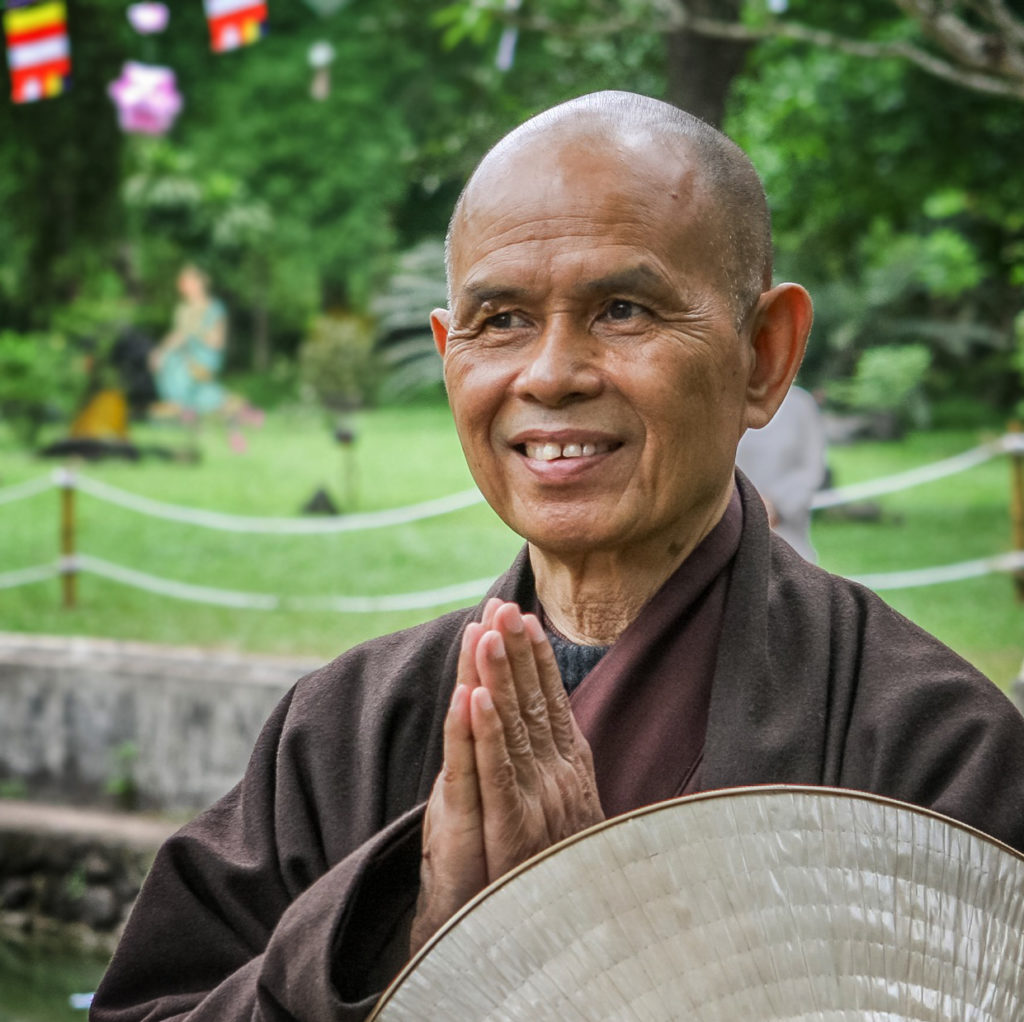Thich Nhat Hanh’s new book is titled How to Smile. If it was anyone else’s name under that titling, one would be inclined to be skeptical. But with Hahn at the helm, and as someone cognizant of his spiritual and altruistic philosophy, the book immediately takes on a new meaning. I’ve never been someone naturally who is appreciative of spiritual and altruistic philosophies as a whole. As a cynic by nature, I’m not someone who looks at the beautiful, micro-cosmological details as wondrously as something more immediate, and I don’t say that at all complimentarily of myself.
FOUNDATION: https://thichnhathanhfoundation.org/thich-nhat-hanh
But somehow, How to Smile breaks through and penetrates just about anyone who will read it. Perhaps because Thich Nhat Hanh speaks, given his experience, to traits and facets that are universal. There’s no disconnect or removal in the book from one’s walk of life, or unique experience. Wisely, the book in many ways is a series of collected precepts, speaking to finding inner happiness and one’s innate sense of worth – both for themselves, and for the things around them. Highlights include the following, which speak to something I think the average consumer needs to hear. With record-level rates of depression and anxiety in polling, particularly amongst upon younger groups of people, How to Smile should be something of required reading.
“As you look deeply into suffering, you may find out many things,” Hahn writes, in a key passage relevant to the aforementioned titled Learning from Suffering. “You can investigate its roots and see what habits of consumption you’ve been feeding it with, what you ingest in terms of the four nutriments: edible food; sense impressions (sights, sounds, etc., that you bring in through your senses); your deepest motivations; and your thinking. You may discover that your suffering is not only an individual manifestation but a collective manifestation that carries within it the suffering of your parents, your ancestors, your people, your nation, and the world. Maybe your parents or ancestors didn’t know how to handle their suffering and transform it, so they have transmitted that suffering to you. If we listen deeply enough, we will understand and suffer less.”
He also writes, “Many of us worry about the world situation. As individuals, we feel helpless, despairing. The situation is so dangerous, injustice is so wide- spread, the danger is so close. In this kind of situation, if we panic, things will only become worse. We need to remain calm, to see clearly. Meditation is to be aware and to try to help. After the war, many people left Vietnam to travel in small overcrowded boats across the Gulf of Siam. Often they were caught in storms or rough seas. People could panic, making the boat more likely to sink. But if one person aboard could remain lucid and calm, knowing what to do and what not to do, that person could help the boat survive. Their voice and body would communicate clarity and calm; people would trust them and listen to what they had to say.
AMAZON: https://www.amazon.com/How-Smile-Mindfulness-Essentials-Book-ebook/dp/B0BG26BSTR
One such person can save the lives of many. Our world is something like a small boat. Compared with the cosmos, our planet is a very small boat. We may be about to panic because our situation is no better than that of the small boat in the sea. Humankind has become a very dangerous species. We need people who can sit still, are able to smile, and can walk peacefully in order to save us. In my tradition it’s said that you are that person, that each of us is that person.”
Garth Thomas

